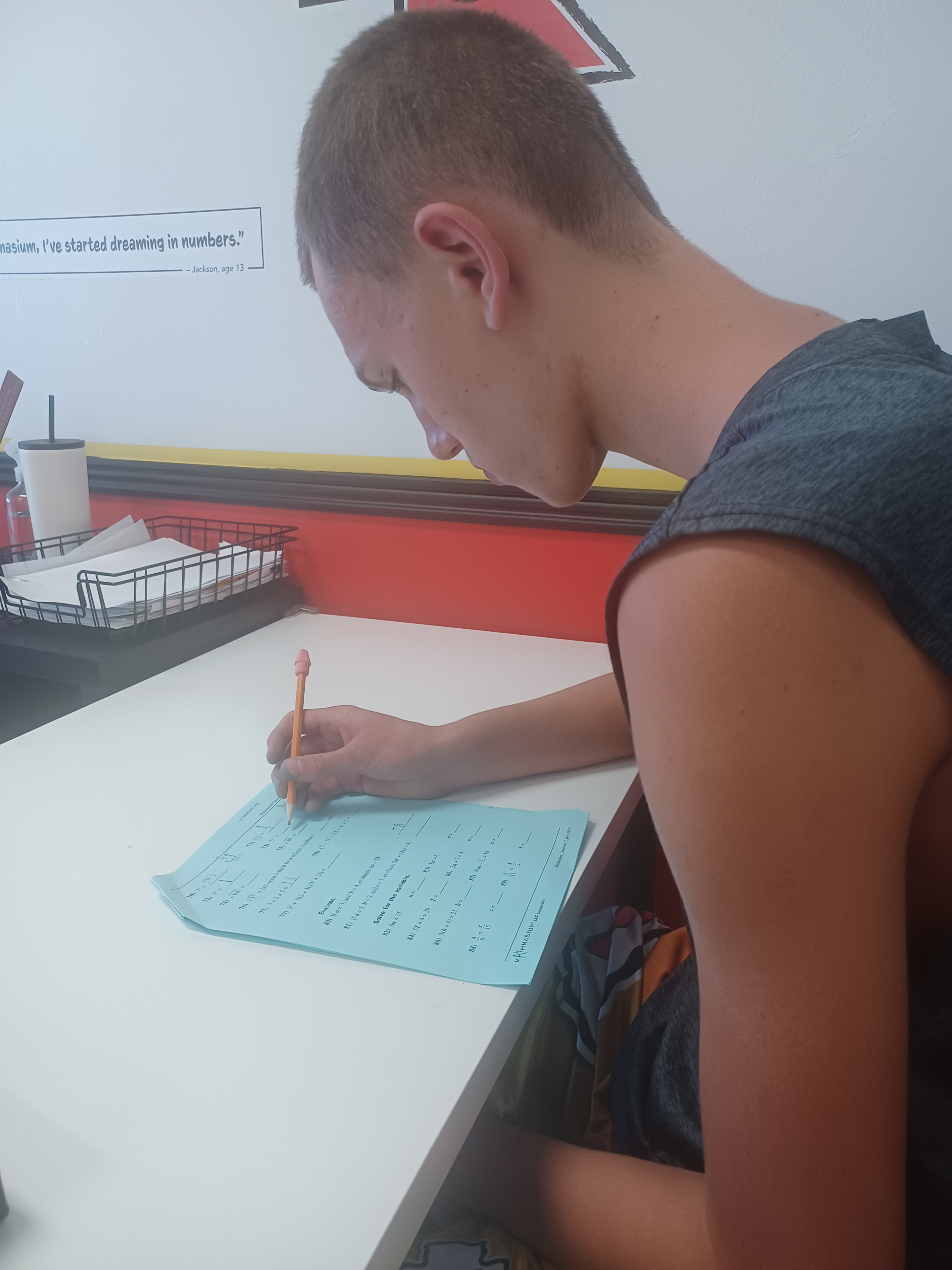Scottsdale
10810 E. Via Linda
, #115
Scottsdale, AZ 85259
Scottsdale, AZ 85259

Q: What is a comprehensive assessment?
A: Mathnasium's comprehensive assessment is a student's first step towards reaching their goals. Students work with our trained Center Directors during the assessment. The Director asks the student a series of verbal questions, and then the student works independently on a written portion of the assessment. These pieces together give us a picture into the student's math understanding.
Q: What things do you learn about a student when they take a comprehensive assessment?
A: Our assessments help us identify each student's strengths and opportunities to grow so we can create a learning plan specifically designed to help them reach their goals. We identify not only things the student is confident doing, but also any knowledge gaps the student has incurred. These gaps could be caused by a variety of factors - online learning, missing school, simply didn't "click" with the teacher's explanation or was too uncomfortable to ask for clarification. When these gaps are not addressed, they pile up and cause difficulty further down the road.
Q: What is a customized learning plan?
A: The learning plan is Mathnasium's answer to correct these learning gaps and opportunities for growth. We start with the simplest concept your student struggles with and move to the more complex ones as they demonstrate mastery. It's like building a house; the foundation has to be solid before you can build walls, and the first story has to be solid before you can add a second. That's how we think of a learning plan - like we're building a house. We move at the student's pace, and we keep layering on complexity as we go.
Q: How do you gauge progress?
A: Mathnasium considers a concept mastered when the student can answer questions accurately and confidently. We give Mastery Checks at the end of each topic that function as a quiz to make sure the student has retained what they've been working on. Additionally, we give bigger Progress Checks every 3 months to check for longer term retention. Sometimes students need refreshers, but often students take the skills we have been working on and apply them to new problems and solve questions we haven't studied together yet! It is truly remarkable to watch students develop into independent problem solvers and confident mathematicians.
